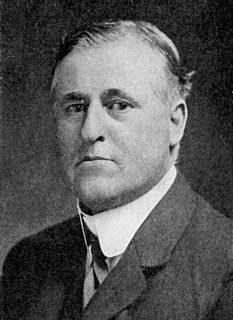A Quote by William Watson
Lord of the golden tongue and smiting eyes; Great out of season and untimely wise: A man whose virtue, genius, grandeur, worth, Wrought deadlier ill than ages can undo.
Related Quotes
The unique impression of Jesus upon mankind - whose name is not so much written as ploughed into the history of the world - is proof of the subtle virtue of this infusion. Jesus belonged to the race of prophets. He saw with open eyes the mystery of the soul. One man was true to what is in you and me. He, as I think, is the only soul in history who has appreciated the worth of man.
There is no tongue to speak his eulogy;
Too brightly burned his splendour for our eyes:
Far easier to condemn his injurers,
Than for the tongue to reach his smallest worth.
He to the realms of sinfulness came down,
To teach mankind; ascending then to God,
Heaven unbarred to him her lofty gates,
To whom his country hers refused to ope.
Ungrateful land, to its own injury
Nurse of his fate! Well too does this instruct,
That greatest ills fall to the perfectest.
And 'midst a thousand proofs, let this suffice,
That, as his exile had no parallel,
So never was there man more great than he.
Any man will go considerably out of his way to pick up a silver dollar; but here are golden words, which the wisest men of antiquity have uttered, and whose worth the wise of every succeeding age have assured us of; and yet we learn to read only as far as Easy Reading, the primers and classbooks, and when we leave school, the Little Reading, and story books, which are for boys and beginners; and our reading, our conversation and thinking, are all on a very low level, worthy only of pygmies and manikins.
In his scientific genius, man has wrought material miracles and has transformed his world. He has harnassed nature and has developed great civilizations. But he has never learned very well how to live with himself. The values he has created have been predominantly materialistic; his spiritual values have lagged far behind. He has demonstrated little spiritual genius and has made little progress toward the realization of human brotherhood. In the contemporary atomic age, this could prove man's fatal weakness.
I think that's very significant that we're so attached to the idea now of - it was something I advocated for years, that you can make music in studios, music doesn't have to be made as a real-time experience. But now you see the results of that in people who are completely crippled unless they know that they have the possibility of "cut and paste" and "undo." And "undo" and "undo" and "undo" and "undo" and "undo" again.






































